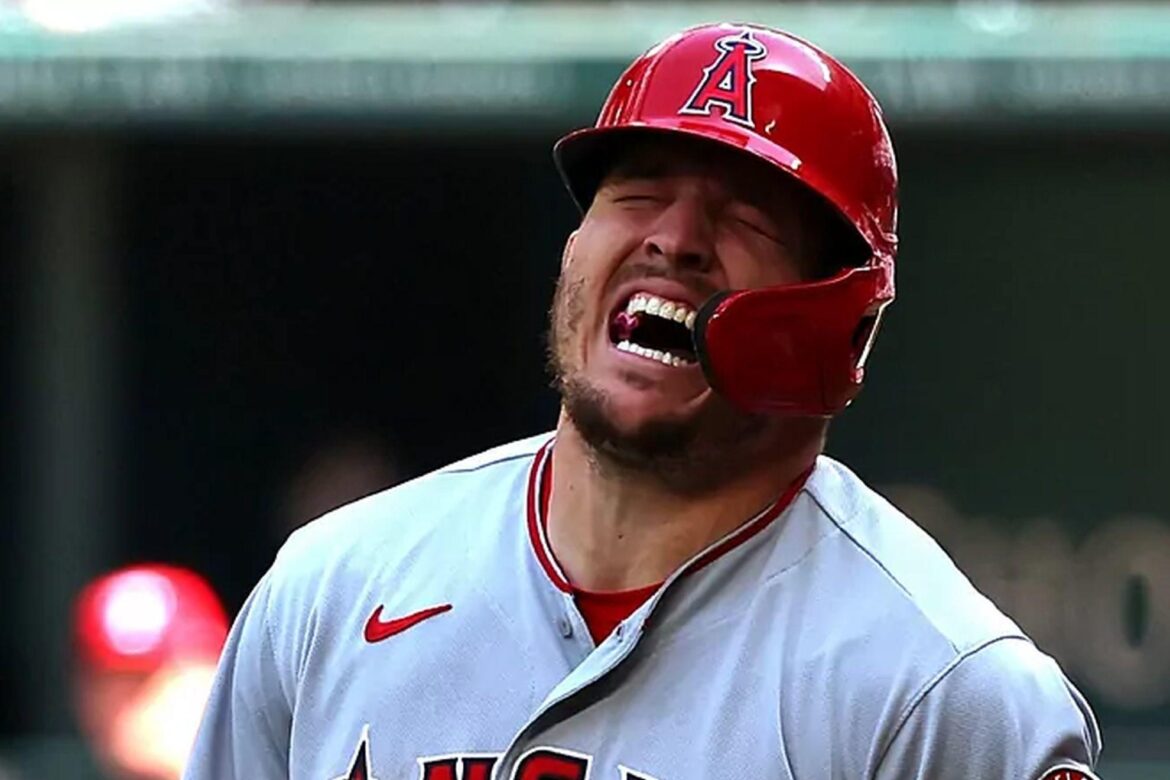In a move that has captured the attention of baseball fans and analysts alike, Los Angeles Angels star outfielder Mike Trout has opened up about his future following a recent injury setback. As one of the game’s premier talents, Trout’s health and performance have significant implications not only for the Angels’ postseason aspirations but also for his legacy in the sport. In a candid discussion, Trout addressed the challenges posed by his latest injury and how it has influenced his career trajectory, leaving many to wonder about the decisions he may confront as he eyes a return to the diamond. This pivotal moment in Trout’s career brings to the forefront the ongoing dialogue about player health, longevity, and the ever-pressing question: how much longer can one of baseball’s all-time greats continue to play at an elite level?
Mike Trout Reflects on Future Plans Following Recent Injury Setback
In a candid discussion following his recent injury, Mike Trout expressed his thoughts on the future of his career, highlighting the challenges he faces as he navigates recovery. The three-time MVP was sidelined after suffering a setback, which has sparked speculation about whether he may consider retirement or a shift in his playing strategy. Reflecting on this critical juncture, Trout noted the importance of focusing on his health while remaining committed to the sport he loves. “I want to be out there on the field, but I also have to be smart about my body and how it reacts,” he stated, emphasizing the balance between passion and practicality.
As Trout contemplates his next steps, he outlined several factors that will guide his decision-making process:
- Health Management: Prioritizing long-term recovery to ensure consistent performance.
- Team Dynamics: Assessing how his role within the Angels can evolve during his recovery.
- Future Goals: Setting both short- and long-term objectives for himself and the team.
In a recent press conference, he spoke about the importance of mentorship within the sport and hinted at potentially transitioning into roles that would allow him to impact the game off the field. It’s evident Trout is not only focused on his own journey but also considering how his experiences can benefit upcoming players.
- Advertisement -
Evaluating the Impact of Trout’s Health on the Angels’ Season
The ongoing struggles with Mike Trout’s health have cast a long shadow over the Los Angeles Angels’ season. As the star outfielder continues to grapple with injuries, the impact on the team’s performance is undeniable. Without Trout in the lineup, the Angels have faced challenges not only in their offensive output but also in maintaining the morale of the team. His absence has led to a noticeable shift in dynamics, with younger players forced to step up and fill the considerable void left behind. The team’s win-loss record during his injury spells provides a stark illustration of his value:
| Period | Record Without Trout | Record With Trout |
|---|---|---|
| Early Season | 10-15 | 15-5 |
| Mid-Season | 5-12 | 12-8 |
| Late Season | 4-10 | N/A |
Beyond the immediate on-field consequences, Trout’s injuries have prompted discussions regarding his long-term career trajectory. As one of baseball’s premier talents, the weight of his health decisions resonates not just with fans and teammates but also with the franchise. Listening to Trout and his team’s medical guidance has become paramount as they navigate the balance between a competitive season and his future. It raises critical questions about how the Angels will strategize moving into the offseason and beyond:
- Will the Angels adjust their roster to better support Trout’s healthier return?
- What backup plans are in place for comparable talent should injury concerns persist?
- How can the team foster a culture that minimizes injury risk across the roster?
Expert Insights on Managing Star Athletes’ Careers Amidst Injuries
In a landscape where injuries can dictate the trajectory of an athlete’s career, the case of Mike Trout serves as a poignant reminder of the delicate balance between ambition and health. Following his latest setback, Trout has sparked conversations among sports professionals about the strategic considerations that go into managing an athlete’s career. Key insights suggest that a tailored approach, including the following factors, can improve outcomes:
- Health Monitoring: Continuous assessment of physical condition can preemptively address issues.
- Injury Recovery Programs: Custom rehabilitation strategies are paramount for effective recovery.
- Career Longevity Planning: Decisions should prioritize long-term performance over short-term gains.
Amidst such discussions, the role of agents, coaches, and sports organizations has come under scrutiny. The need for transparent communication and coordinated care is evident, as illustrated in the table below, which outlines how different stakeholders can effectively collaborate:
- Advertisement -
| Stakeholder | Role | Responsibility |
|---|---|---|
| Agents | Career Advisers | Negotiate contracts while considering health implications. |
| Coaches | Performance Managers | Implement training regimes that prioritize safety. |
| Organizations | Support Systems | Provide resources for injury prevention and recovery. |
Final Thoughts
In conclusion, Mike Trout’s latest injury has once again brought to the forefront the discussion surrounding his illustrious career and future decisions. While the three-time MVP has reiterated his desire to return to the field, the challenges posed by ongoing health issues cannot be overlooked. As Trout continues to heal and evaluate his options, both fans and analysts will be watching closely. His status as one of the game’s greatest talents means that any decision he makes will not only impact his career but also the landscape of Major League Baseball. The Angels and their supporters are hopeful for his swift recovery, but questions about longevity and maintaining his elite performance levels linger in the minds of many. With his commitment to the game evident, the baseball world remains eager for Trout’s next chapter, wherever that may lead.


